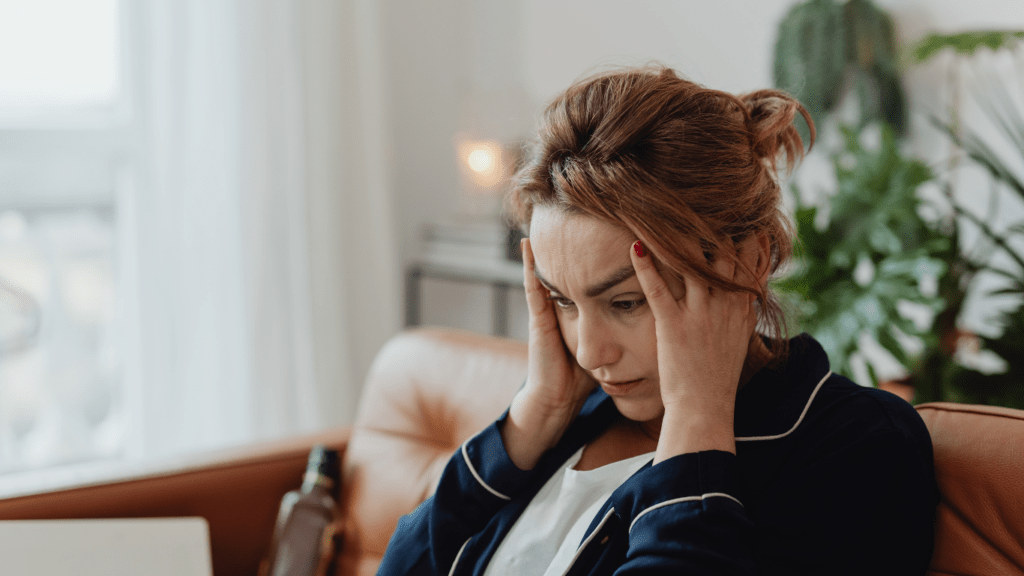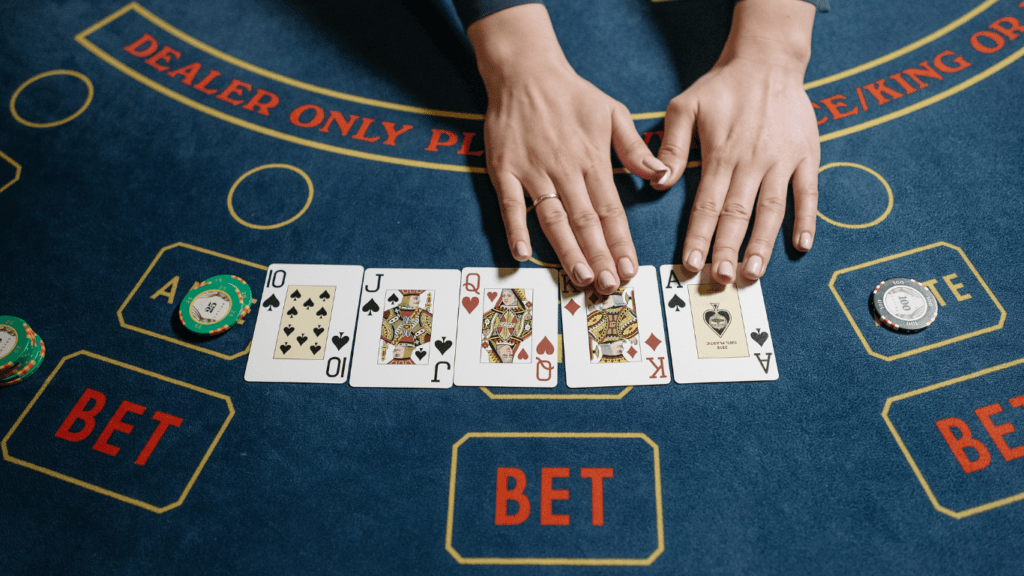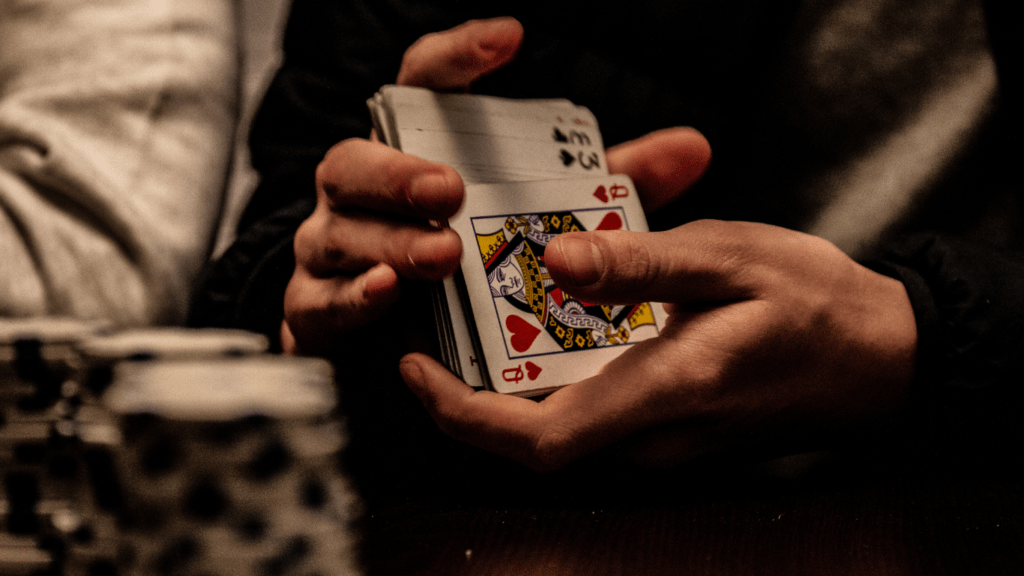Feeling stressed or anxious is a common experience for many of us, but have you ever considered how these emotions can influence our gambling behavior? In my exploration of the impact of stress and anxiety on gambling behavior, I delve into the intricate relationship between our mental state and decision-making processes. It’s fascinating to uncover how these psychological factors can significantly shape the way we approach risk and reward in the context of gambling.
As I navigate through the complexities of this topic, I aim to shed light on the mechanisms that drive individuals to seek solace or excitement in gambling activities when faced with stress or anxiety. Understanding these dynamics is crucial in unraveling the layers of human behavior and the coping mechanisms we employ when confronted with challenging emotions. Stay tuned as we unravel the intriguing connection between stress, anxiety, and gambling behavior.
Exploring the Relationship between Stress, Anxiety, and Gambling Behavior
Investigating the correlation between stress, anxiety, and gambling behavior reveals fascinating insights into human psychology and decision-making processes. Stress and anxiety can significantly impact individuals’ propensity to engage in gambling activities, influencing their risk-taking behaviors and seeking of rewards in such scenarios.
Understanding how stress and anxiety interplay with gambling behavior unveils the intricate mechanisms that drive individuals towards gambling as a coping mechanism during challenging times. It’s crucial to recognize these dynamics to comprehend better why some individuals resort to gambling to alleviate stress or find excitement amidst anxiety-inducing situations. This exploration sheds light on the complex relationship between mental states and behaviors in the context of gambling.
The Psychological Effects of Stress and Anxiety on Individuals Engaged in Gambling
Stress and anxiety play a significant role in shaping individuals’ behaviors and decisions when it comes to gambling activities. The correlation between stress levels and the frequency of gambling is a crucial aspect to consider in understanding the impact of psychological factors on gambling behavior. Higher stress levels can often lead to increased gambling frequency as individuals seek ways to cope with or escape from stressful situations through the excitement and perceived rewards of gambling.
Correlation Between Stress Levels and Frequency of Gambling
When individuals experience high levels of stress, they may turn to gambling as a means of seeking relief or distraction from their worries. This correlation between stress and the frequency of gambling highlights how psychological factors can influence one’s engagement in gambling activities. Research has shown that individuals facing stressful situations may be more inclined to gamble frequently in an attempt to alleviate their stress or anxiety temporarily. Understanding this relationship is essential in developing interventions to address problem gambling behaviors linked to elevated stress levels.
Influence of Anxiety on Decision-Making in Gambling Contexts
Anxiety plays a crucial role in shaping decision-making processes in gambling contexts. Individuals experiencing anxiety may exhibit altered cognitive functions that impact their risk assessment and decision-making abilities when engaging in gambling activities. The influence of anxiety on decision-making in gambling contexts can lead to impulsive actions, increased risk-taking, and distorted perceptions of outcomes. Recognizing how anxiety influences decision-making is vital in designing strategies to support individuals in making informed and responsible choices regarding their gambling behavior.
Behavioral Patterns Associated with Stress and Anxiety in Gambling Environments
- Impulsive Betting Tendencies Under Stressful Conditions
When under stress, individuals often exhibit impulsive tendencies, leading to hasty decision-making in gambling environments. Stress can cloud judgment, prompting quick and risky bets without considering potential outcomes thoroughly. This impulsivity under stress is a common behavioral pattern observed in individuals facing heightened emotional distress in gambling scenarios.
- Increased Risk-Taking Behavior Linked to Anxiety
Anxiety has been associated with heightened risk-taking behavior in gambling settings. Individuals experiencing anxiety may seek the thrill of risk as a temporary relief from their anxious thoughts and feelings. This increased risk propensity can result in larger bets, chasing losses, and engaging in reckless gambling practices to alleviate anxiety symptoms temporarily.
Coping Mechanisms and Interventions for Managing Stress and Anxiety in Relation to Gambling
Exploring effective coping mechanisms and interventions is essential in addressing the impact of stress and anxiety on gambling behavior. As someone who has studied this relationship extensively, I can affirm that implementing tailored strategies can significantly help individuals manage their stress and anxiety levels while combating problematic gambling habits. Here are some key approaches that can be beneficial in this context:
Setting Limits and Boundaries
Setting clear limits on gambling activities can act as a preventive measure against impulsive behavior driven by stress. By establishing boundaries on time and money spent on gambling, individuals can regain control over their actions, reducing the negative impact of stress and anxiety on their gambling habits. For example, I advise setting a weekly or monthly gambling budget and strictly adhering to it to avoid excessive gambling fueled by stress-induced impulses.
Seeking Professional Help and Support
Professional intervention, such as therapy or counseling, can provide individuals with the necessary tools to address underlying stress and anxiety issues that contribute to problematic gambling behavior. Working with a qualified therapist can help individuals develop healthy coping mechanisms, manage their emotions effectively, and challenge distorted thought patterns fueling their gambling habits. As an expert in this field, I highly recommend seeking professional help to address the root causes of stress and anxiety related to gambling.
Engaging in Alternative Activities
Diversifying one’s activities and hobbies can serve as a healthy distraction from gambling urges driven by stress and anxiety. Encouraging individuals to explore other interests such as sports, arts, or socializing can help shift their focus away from gambling triggers and reduce the impact of stress on their decision-making processes. As someone passionate about holistic well-being, I advocate for incorporating varied activities into one’s routine to maintain a balanced lifestyle free from excessive reliance on gambling as a coping mechanism.
Building a Support Network
Social support plays a crucial role in managing stress and anxiety associated with gambling behavior. Encouraging individuals to confide in trusted friends, family members, or support groups can provide them with emotional support and practical guidance in coping with stress-induced gambling tendencies. Creating a strong support network fosters a sense of community and understanding, allowing individuals to seek help when needed and stay accountable in their journey towards healthier gambling habits.
Addressing stress and anxiety in the context of gambling requires a multi-faceted approach that combines personal responsibility, professional guidance, and social support. By implementing tailored coping mechanisms and interventions, individuals can effectively manage their stress and anxiety levels while striving towards a healthier relationship with gambling.




